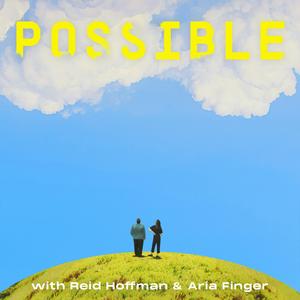In this episode, Reid and Aria unpack the growing panic around layoffs, the actual impact of AI on work, and why autonomous agents are reshaping productivity faster than most people realize. Reid points out that today’s layoffs are being erroneously blamed on AI, rather than on economic turbulence and post-COVID refactoring. The conversation then turns to the viral ClawdBot/Moltbot/OpenClaw moment and explores what it means for productivity, security, and trust when autonomous agents can not only act across email, calendars, files, and financial systems, but also interact and gather with each other. The episode closes with a pivot to politics, as Reid explains why Silicon Valley and business leaders can no longer claim neutrality in today's polarized political landscape, arguing that real leadership requires speaking up before it’s too late.


